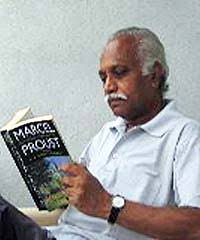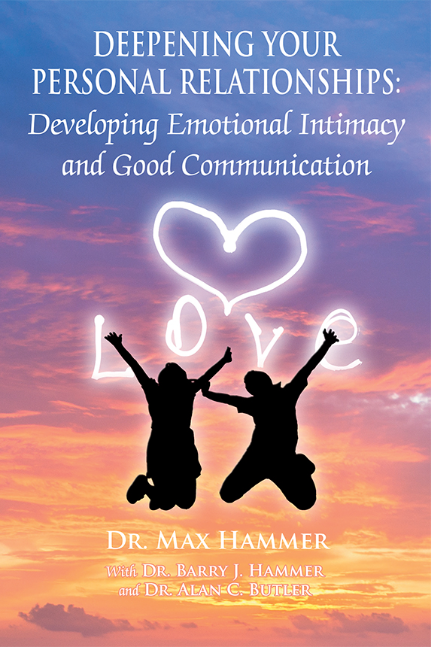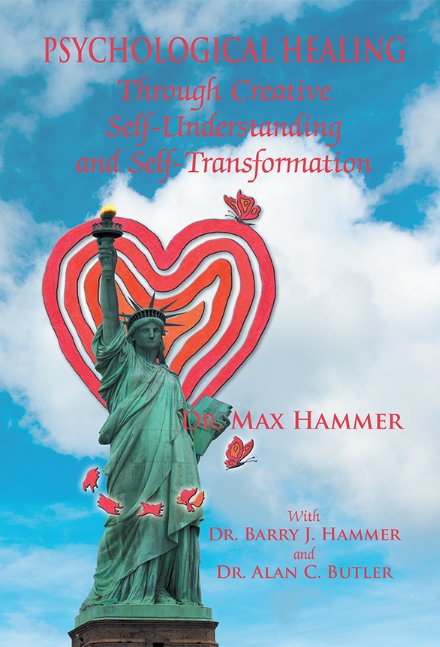Swap for Nope

"Here is that fact beyond fiction," he began to narrate with a parental pride that didn't escape my attention. "What a handicap it was to be divorced, thought my son; self-service at home and harlot-solace in a brothel; what service and how much solace! Women were ever scary of even wealthy divorcees as if divorce underscores one's incompatibility once and for all, and a whore was no answer for a wife. Surely some featureless young thing could be willing and that's no choice of a wife any way; but a lucky guy could bump into a desirable dame in the blind alleys of the Cupid and that's a rarity anyway; as for affairs, they were seldom, even for the well-heeled in their prime, but as life is meant to be lived, he resolved, one had to go about it regardless and how to make the best of time was the essence of existence."
"Envisioning liaisons through friendship magazines seemed to him no more than chasing the mirages of lust," he continued with the account of his son's life. "But for an ad here and there from a genuine dame, the rest were all from the cravers of female flesh, and given the lack of proper response, one might wonder whether the 'willing women' were indeed real beings or merely fictitious characters meant to buttress the publishers' bottom lines; even otherwise, with the exhibitionist tone of the machismo ads, going through the pages left one with a sickening feeling; pity the dames who fell for such guys. Maybe the saving grace was the insertions for wife-swapping that seemed genuine for they were all about give and take; but then, wasn't he rendered a hors de combat for he lacked the means for a quid pro quo? What about Vimala, he thought as he recalled that evening when he was led into a lounge of a mansion where he found a score of whores in awkward postures, and as he turned his back on the gaudy dames in disgust, one lissome lass in a Turkish towel walked in. Enticed, as he followed her in a trance, she sauntered along endearingly in her semi-nude, and that ushered in an unusual romance between them."
"It's as if your son had stolen your address-book of those places."
"Well," he said after a hearty laugh, "it occurred to him that Vimala could carry herself to pass off for his wife; what's more she was bound to tempt any hesitant husband to jump into the swap trap. What an idea to pay her for the favors of a MILF or two in the wife swaps though not all of them were honeys? So roping in Vimala, he went on a hunt for the promising, and soon succeeded in roping in the willing – an educated and sophisticated couple in their mid-twenties, who were married for some years by then; he was handsome and successful, and she was sexy and charming. While they led an active sexy life, their family cradle remained empty, and that let the ennui set into their otherwise wondrous life. So, they tried to enliven their life by seeking pleasures as their fancies suggested, but as the novelty of those diversions wore off, their cumulative exasperation increased reducing the span of their thrill; and back to square one, they realized that they had lost the capacity to enthuse each other, so bored to death but committed to each other, they dragged their feet on their drab marital course. But when their love for adventure made them think in terms of venturing into the forbidden avenues of human joys, they began searching for a suitable couple to make it a foursome for a fulsome life."
"Cynically brilliant, and surely it's a notch above your threesome idea in the hospital."
"Didn't I tell you that my son did far better than that," he continued. "The orgies that followed brought them all closer and that made them feel blessed in their blissful state. Soon the lover in my son cherished the woman of that wife and began to wish that she were his spouse, and she, used to sex as a marital obligation, found his lovemaking emotionally fulfilling. When she was in the family way, she instinctively knew that Satish was the father of the child; and as the issue in the offing began to draw her towards him, she thought about the ethics of its upbringing in the existing setting; as her maternal instinct got the better of her feminine infirmities, her husband's position in her life seemed untenable in her perception, and it took little time for her to resolve that my son was the man of her destiny. Much before the expected delivery, she deserted her man to begin her life afresh with Satish; and to avoid a first rate scandal, we got them married in secrecy. Didn't you hear the talk on the grapevine about the simple wedding of Satish and Sarala?'
"Yes, but...."
"It was not the end of it," he continued. "Let down and lonely for his misadventure, the lost soul was left to rue his folly; but as time started clearing the debris of his fate, he began to pick up the threads of life. As woman could only heal the wounds caused by woman, he went to a brothel for solace, only to be doubly wounded; he found Vimala among the girls and was dumbfounded to learn that she was picked up by Satish to act as a dupe to deceive him. When he threatened to sue Satish for the breach of trust and other criminal offenses, I had to cough up much to keep him off; legal case or not, surely he had a damaging story to sell to our hurt."
This episode is from the author's 'Glaring Shadow - A stream of consciousness novel, a free ebook in the public domain.
Related posts
Katie After The End
She thought it was time to put her sword away… but then the Demon Lords returned.
Immerse yourself in the riveting saga of a Latina heroine, enslaved by demons, who rises from the ashes of the Apocalypse.
Meet Katie, a beacon of hope in a world ravaged by war. Just when she thought her days of battle were finished, a cryptic message shatters her newfound peace, making her question everything she fought to accomplish.
Thrust into a world teetering on the brink of destruction, Katie is faced with challenges that test her resolve. Can she overcome deep-seated racial prejudices? Can she mediate peace between two embattled factions? Can she endure the trials of her first love? Above all, can she vanquish the darkness threatening to engulf her world?
From the pen of bestselling author Scott W. Kimak comes another tale of love, loss, and suspense in this breathtaking story of one of his most memorable characters. If you like action-packed nail-biters that keep you on the edge of your seat, then you'll love Katie After the End.
Buy Katie After the End and get ready for the ride of your life today!
https://www.amazon.com/After-End-Post-Apocalyptic-Survival-Extinction-ebook/dp/B0CJ24HKFH
Deepening Your Personal Relationships: Developing Emotional Intimacy and Good Communication
Deepening Your Personal Relationships: Developing Emotional Intimacy and Good Communication
(ISBN: 978-1-61897-590-4)
Looking for Better Relationships? Let the Experts Tell You How!
Deepening Your Personal Relationships was written by three experts in the field. Their combined expertise will help you in Developing Emotional Intimacy and Good Communication, which will be beneficial in all types of relationships.
Everyone wants to improve and deepen their relationships. The book explains how to achieve healthy and fulfilling interpersonal relationships by using effective communication, empathy, shared transformational development, and constructive conflict resolution to achieve this aim. Deepening Your Personal Relationships provides original, meaningful, and transformational insights that are especially helpful in understanding how to overcome our subconscious resistance against emotional intimacy and good communication. The goal is to understand how good relationships can produce enhanced levels of spiritual development, psychological healing, self-understanding, creative functioning, inner peace, happiness, and ultimately, fulfillment in life. A section on improving society through enhancing interpersonal relationships is also included.
Thus, readers wanting to enhance their personal relationships, gain insight into transformational self-help, and achieve social transformation will find this book especially helpful. The authors anticipate that this book will also be of keen interest to professional relationship counselors, including marriage counselors, family counselors, and conflict mediators, as well as community organizers and social activists.
Targeted Age Group:: Adults and Teens
What Inspired You to Write Your Book?
We were inspired to write this book as a way of helping readers understand how to develop psychologically healthy, fulfilling interpersonal relationships, with true love, good communication (i.e., open, honest, direct/non-evasive, nonjudgmental/non-blaming, respectful, communication). Another related goal was to help readers understand and overcome the ego’s fearful, narcissistic, attempt to undermine the development of experiential closeness or caring intimacy in relationships. Furthermore, we sought to alert readers to how good relationships can contribute to the development of greater levels of psychological wellbeing, genuine self-understanding, and spiritual awakening. We authors are deeply saddened to see many potentially beautiful and happy relationships fail because of the lack of public understanding of psychological factors that can facilitate or impede the development of true love, experiential intimacy, and good communication; and that is the primary reason why we feel a responsibility to make our combined insights available to the public.
Book Sample
Excerpt from the Introduction of the Book:
Some of the basic components of a real, lasting relationship that will be discussed more extensively in this book (especially a more detailed description of the basic components in chapter 1) are summarized as follows:
1) Relating to the person and not the persona. One is in a real relationship with another individual to the degree that one relates to what is actually experientially real in the other person, from moment to moment, rather than relating to what the other individual offers up as a self-concept, or to the concepts, images, and presumptive interpretations that we project or superimpose upon the other. In addition, one must offer up to the other what is experientially real in himself or herself, rather than offering some idealized conceptual self-definition, or predetermined psychosocial mask, with which one is identified.
2) Growth-oriented rather than object-oriented: An optimal real relationship offers opportunities for transformational developmental growth of liberating new insight, leading to more fulfilling ways of functioning, or living, rather than being locked into predetermined ways of relating and functioning, as well as holding predetermined views of oneself, the other person, and the relationship itself. Openness to liberating new insights can significantly enhance the functioning of each of the individuals in the relationship, as well as enhance the functioning of the relationship itself, arousing what is most creatively empowering, productive, revealing, constructive, vibrantly alive, healing, transformational, and spontaneous in each individual, as well as in their relationship. Later in this book, we will also discuss how a pseudo-relationship, egoistic relationship, or object relationship is devoted to making an object of the other person, meaning the person views the other as a defined interpretive label and controlled possession, or an “It,” in Martin Buber’s terminology (reference note 3), rather than empathically tuning into their living energy presence and experiential states, or what Buber calls the “Thou,” and valuing the other individual and one’s relationship with them for its own sake, primarily, rather than just valuing them for the sake of some kind of egoistic gratification that they are expected to provide. That kind of predetermined, controlling way of relating to another individual restricts rather than enhances the transformational growth of each individual, and of the relationship itself, in contrast to relationships in which greater levels of openness, flexibility, insight, and creative transformation exist. When the other person relates to you with what is experientially real in themselves, it will naturally trigger in you a spontaneous experiential reaction, which if observed non-dualistically and non-judgmentally will yield creative self-understanding, (reference note 4), which in turn will serve as the basis of transformation into more fulfilling levels of psychological functioning, or psychological growth. (We are using the terms “creative self-understanding” and “genuine understanding of others” to refer to insights that come from direct experience and from openness to the deepest core of one’s own being–unrestricted and undistorted by any preconceived interpretive presumptions). In contrast to a growth-oriented relationship, an object relationship exists if one relates primarily not to the whole person, but rather, to the particular aspect of another person that one can exploit for one’s own gratification. In such a relationship, there is an attempt to prevent the other person from outgrowing old habits and growing in real self-understanding and self-transformation because that prevention of growth guarantees that one will not lose the particular aspect of the other individual that one is using for self-gratification. For example, a dependent person makes you feel strong, so you do not want her to outgrow her dependency.
3) Unconditional acceptance of the whole person: One is open to and non-judgmentally accepting of the whole of the other person, and not just focusing selectively upon whatever partial aspects of them relate to one’s own perceived need for gratification. Unless you are first able to accept yourself unconditionally, you are not free to accept the other person unconditionally, and be in a real relationship with them. For example, if you label yourself as weak and insecure, and you seek to compensate for those traits through the relationship, you will look for and accept only strength and security in the other individual, and reject all other contradictory traits.
True love is not selective, not a positive value judgment, not a conditional intense favorable valuing, an extreme approval, a conditional acceptance, of preferred or desired partial aspects of the other individual, but, rather, love is an unconditional acceptance of and appreciative empathic attunement to the whole other person, including their indivisible whole life energy presence, and all of its natural expressions and genuine experiential aspects. The whole of the other person is perfect to us, or beyond conditional approval and disapproval, but not perfect as an idealized image of unrealistic infatuation projected onto the other individual, conditionally value judged extremely positively, or extremely favorably, for partial aspects of him or herself that conform to our own selective preferences, expectations, needs, and fantasies; instead, the beloved is unconditionally accepted as being of absolute value as a living energy presence. When we truly love someone, we do not conditionally value them only when they conform to our own selective needs, expectations, needs, and fantasies; instead, the beloved is unconditionally accepted as being of absolute value as a living energy presence.
To truly love someone is to relate to, appreciate, and cherish what is actually, naturally real in them, rather than projecting imaginary idealized images and valuing that in them. We intuitively recognize that the beloved simply feels right for us, they simply belong with us, their energy presence feels like a naturally compatible “good fit” with ours. We intuitively recognize a deep sense of mutual inner familiarity with the distinctive life energy presence of the other individual, so our love or caring is not dependent or conditional upon the other individual conforming to some kind of idealized image of perfection, demanding expectations, or preconceived roles. That intuited sense of natural relatedness of being, inherent belonging, or inner familiarity enables individuals to remain unselfishly devoted to one another and to unconditionally remain together “for better or for worse,” as suggested by the traditional marriage vow, but also applicable to other kinds of non-marital caring relationships.
True love is enduring, not temporary, for it is not dependent upon any conditional reason (there is no “I love you because….”); it is not conditional, because our intuitive recognition of natural relatedness of being or inner familiarity does not depend on changing circumstances or upon altering or distorting the other person’s natural real being, experience, and expressions. True love is free of conditional valuing based on self-seeking motives, so our love does not depend on, or is not conditional upon, having the beloved provide us with intense feelings of excitation and gratification (be they sexual, sensual, intellectual, emotional, entertaining, financial, etc.). We love the other person for their own sake, and are contented to relate to what is actually experientially real and spontaneously natural in them, regardless of whether they gratify particular needs, ideals, fantasies, and expectations that we may value.
True love is sufficient unto itself, and therefore unconditional, because it is fully satisfying to the core of our being, even if it does not satisfy the ego’s conditional expectations and needs. True love can be unconditional and without excessive self-seeking motives because it arises from an intuited sense of contentment, relaxed security, and inner wholeness of being, in contrast to relationships focusing on seeking gratification of insatiable, often unreasonable, impatient, intensely demanding needs arising from the ego’s basic sense of deficiency, discontent, or lack of intrinsic wholeness, security, and wellbeing.
Because love is the essential core of life energy, it is the one basic comprehensive passion, which subsumes all of the natural constructive wholesome passions of life within itself. Perhaps all, or most, hungers, appetites, yearnings, or aspirations, are ultimately derived from, and satisfied by, the natural hunger to experience the connective energy of loving warmth in the core of the heart, as an optimal experience of wholeness, security, sweetness, beauty, grandeur, charm (wonder-full enchantment), and joyful vitality.
True love unconditionally accepts, warmly embraces, and cherishes, all that is truly real and natural in the beloved, because true joy, vitality, and beauty is found only in what is real and natural, and cannot be found in any kind of imaginary ideal or preconceived demanding expectation, which only imitates the true goodness of life energy, like a lifeless statue, doll, idol, photo, or portrait. The true goodness of the relational reality of life as love can be found, contacted, experienced only when we are contented to contact the immediacy or undefinable mystery of another person’s undivided whole being without superimposing any preconceived agendas of the controlling, selective, distorting, manipulative, ego-mind.
4) No Manipulation. Manipulation converts the other person into an object for your own exploitation. Manipulation can be overt, viewing relationships as forms of combat, such as, battles to be won and objects or possessions to be manipulated, maneuvered, managed, controlled, which affirms the ego’s power to control, as an illusory sense of security. Subtle forms of manipulation can involve insisting on tangible signs and symbols of love, as a way of enhancing the ego’s fragile sense of self-esteem and emotional security, rather than developing the ability to directly, intuitively, empathically experience another individual’s love for oneself, without demanding such tangible signs and symbols as “proof.”
5) Communication and Understanding: A Real relationship requires a sense of existential relatedness, inner connection, or shared experience, derived from a mutual understanding between the two individuals, at any given moment. This understanding involves a process of empathic communion, producing immediate, non-presumptively mediated, experiential knowledge of the other individual. True understanding is possible only when communication is open, honest, nonjudgmental, non-evasive, and unimpaired.
6) Commitment: For a real relationship to exist, or to develop, there must be a commitment to unconditional acceptance of what is naturally real in the other individual, without necessarily condoning inappropriate attitudes and non-constructive behaviors that are not intrinsic to the other individual’s natural being, but rather, acquired or learned patterns. Commitment involves being devoted to the constructive developmental growth and wellbeing of the other person, and to openness and honesty in communication even when it might possibly result in emotional pain, discomfort, or constructive conflict in the relationship.
7) Investment: Investment involves a mutual reaching out to the other person for contact. Each individual must go outside oneself and give of oneself to the other, and not expect the other to go the whole way in bridging the psychological gap between the two. The investment is like a seed that we plant in the other individual, and permit the other to plant in us, with the hope that the other will nourish it with the warmth of their caring so that one day it will grow and blossom into a flower of fulfillment. The one in whom we invest is the one we entrust with our most fragile self, and we risk that the other will shelter it so that there will be an opportunity for it to grow or be outgrown rather than being rejected or buried by us.
8) Compatibility of values. To accomplish deep mutual understanding and experiential intimacy, the two individuals must share a compatibility of values. Their primary value, that which they hold most dear, and are least likely to surrender, should be basically the same for the two, or at least compatible. Basic compatibility produces mutual empathic understanding of one another. Thus, the compatibility of basic values serves as the uniting force that connects the two individuals, although their more surface values differ. Even though, over the years, one or both individuals may grow psychologically, develop new interests and goals, or change in his or her bodily appearance, their sense of union or psychological connection is unaffected because it exists at a deeper level.
9) Respect. Without it, a relationship is object manipulation. Respect involves permitting the other to be a separate and whole person in her/his own right, rather than just an extension of you. Respect grants the other individual the natural right to have interests, goals, and needs of her/his own, apart from you. You recognize that the other individual is not your possession. You treat the other individual as an adult, as intrinsically equal to you in value and freedom, which means not taking the other individual for granted. Although this other person may always do certain things for you as an expression of caring, you should not come to expect those things to be done for you, and should never demand anything. Instead, recognize that all that the other person does for you comes out of caring, not obligation.
10) Empathy: This involves the ability and willingness to feel what the other person is feeling. It involves the ability to transcend one’s own psychological boundaries and to “stand in the other person’s shoes,” psychologically speaking, or to empathically tune into the other individual’s experiential frame of reference or view of reality. This involves the ability to perceive and experience the world, or particular situations and issues, as the other person does. Without it, one is not able to make full experiential contact with the other person, which is necessary to provide optimal understanding and experiential closeness.
11) Trust. Trust involves a relative state of assurance that if one leaves oneself vulnerable to the other individual, he/she will not take advantage of that state of vulnerability to inflict emotional pain on you. Trust implies accepting a degree of uncertainty. It involves a risk or a feeling of some degree of vulnerability. Without trust, a real relationship cannot survive, because you hold yourself back in terms of what you expose and give to the other individual.
Links to Purchase Print Books
Buy Deepening Your Personal Relationships: Developing Emotional Intimacy and Good Communication Print Edition at Amazon
Buy Deepening Your Personal Relationships: Developing Emotional Intimacy and Good Communication at CreateSpace
Buy Deepening Your Personal Relationships: Developing Emotional Intimacy and Good Communication Print Edition at Barnes and Noble
Buy Deepening Your Personal Relationships: Developing Emotional Intimacy and Good Communication Print book for sale at other booksellers
Read more about the author here.
Have you read this book? Tell us what you thought! All information was provided by the author and not edited by us. This is so you get to know the author better.
Psychological Healing Through Creative Self-Understanding and Self-Transformation
Buyer’s Guide: Psychological Healing Through Creative Self-Understanding and Self-Transformation by Max Hammer, Barry Hammer, Alan C. Butler
By Book Goodies Leave a Comment
 Targeted Age Group: adults
Targeted Age Group: adults
Category: Personal Growth
Print book price range: $19.11-$28.50
eBook price range: $9.99-$9.99
About Psychological Healing Through Creative Self-Understanding and Self-Transformation:
Psychological Healing Through Creative Self-Understanding and Self-Transformation
Are you ready for psychological healing? This book is your liberating guide to psychological growth, including self-understanding, self-transformation, healing psychologically painful inner conflicts, as well as achieving psychological and spiritual fulfillment. Some aspects of psychological health and fulfillment clarified in this book include, authenticity, sincerity, integrity, creativity, intuition, empathy, inspiration, vitality, courage, strength of character, unselfish love (or warmhearted caring), emotional security, inner wholeness, and fulfillment.
Readers will discover a new understanding of effective psychotherapy, groundbreaking diagnostic psychological testing research, as well as the distinction between the ego self-concept, the experiential self, and the transpersonal self (the real self, the relational self, or the holistic self).
The authors deeply explored their own psychological pain and experiential truth to write this book, as a way of helping readers achieve greater self-understanding, fulfillment, and liberation from psychological pain. These principles of psychological self-understanding and healing self-transformation can also enhance the development of interpersonal relationships, as well as facilitate effective and fulfilling ways of living in society. Self-transformation at your fingertips!
Purchase Print Books
Buy Psychological Healing Through Creative Self-Understanding and Self-Transformation Print Edition at Amazon
Buy Psychological Healing Through Creative Self-Understanding and Self-Transformation Print Edition at Barnes and Noble
Links to Purchase eBooks
Link To Buy Psychological Healing Through Creative Self-Understanding and Self-Transformation On Amazon
Link to Psychological Healing Through Creative Self-Understanding and Self-Transformation on Barnes and Noble/Nook
If you have read this book tell us what you thought!
Disclaimer: All information for this book was submitted by the author and is presented as is so you get to know the author and their style. Prices are subject to change.







